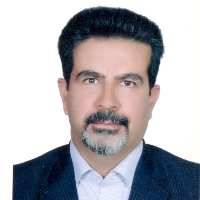Predicting the Intensity of Scrupulosity based on Image of God and Thought Control Strategies in Obsessive-Compulsive Patients
Author(s):
Abstract:
Background
Scrupulosity is one of the mental disorders with a history richer than any other disorder. However, much of the published literature lacks a thorough clinical coverage of the issue. Based on previous studies, most patients with scrupulosity particularly follow dysfunctional thinking patterns related to moral and religious issues. The main goal of this study was to examine the role of God's image and thought control strategies in prediction of scrupulosity intensity in people with obsessive-compulsive disorder (OCD). Methods
Available sampling was used to select sixty patients with OCD (confirmed according to DSM-IV criteria and through clinical interviews) from the persons that referred to counseling centers, clinics and psychiatric clinics in Shiraz. In this correlational study, patients were tested via God Image Scale (GIS), Thought Control Strategies (TCS), Peen Inventory of Scrupulosity (PIOS) and Beck Depression Scale-II. Thus, the intensity of scrupulosity, as the criterion variable, was predicted by image of God and strategies of intrusive thought control. In addition, depression, education and marital status of patients were statistically controlled. The correlations between variables were analyzed using Pearson's correlation coefficient and hierarchical regression analysis in SPSS16. Findings
The mean age of subjects was 25.35 ± 6.91. While Bachelor's degree was the most prevalent educational level (53.33%), 23.3% of subjects had high school diploma, 15% had a master's degree and 8.4% had not even finished high school. The majority of subjects were single (65%). The results showed that the combination of acceptance (B: 0.58, P ≤ 0.001) and God's presence (B: -0/38, P ≤ 0.011) along with punishment strategy (B: 0.33, P ≤ 0.005) could predict 44% of the intensity of scrupulosity in people with OCD. Conclusion
This study provided psychologists and psychotherapists with an opportunity to that consider the type of image and attitudes patients have toward God. As we know, thinking of God as accepting increases the intensity of scrupulosity while considering him as present decreases the problem. In addition, with punishment strategy being identified as the only scrupulosity-related strategy, it needs to be replaced by healthier methods to inhibit and control the intrusive thoughts in patients.Language:
Persian
Published:
Journal Of Isfahan Medical School, Volume:29 Issue: 166, 2012
Page:
7
https://www.magiran.com/p988281
سامانه نویسندگان
مقالات دیگری از این نویسنده (گان)
-
the effectiveness of schema therapy (ST) and intensive short-term dynamic psychotherapy (ISTDP) for improving emotion regulation in Complex PTSD (CPTSD)
Hanieh Hatami, Nurallah Mohammadi*, Habib Hadian Fard, Abdol Aziz Aflakseir
Journal of Research in Psychological Health, -
Psychometric Properties of Anticipatory and Consummatory Interpersonal Pleasure Scale
Erfan Khorshidian Mianaei *, Abdulaziz Aflakseir,
Journal of Recent Innovations in Psychology, -
Compiling a Loneliness Model Based on Self-esteem and Secular Attachment Mediated by Self-compassion in University Students
Shirin Darzi, Mohammad Reza Taghavi*,
Middle Eastern Journal of Disability Studies, -
Comparison of Mentalization, Fear of Compassion and Attachment Styles in Non-Clinical Samples with Borderline and Normal Personality Syndromes
Fatemeh Sharifzadeh, Shirin Amirteimouri, , Diba Davoudnezhad, Nezamoddin Ghasemi*
Journal of Research in Behavioural Sciences, -
The Mediating Role of Mentalization and Self-Emotion Regulation in the Relationship between Childhood Trauma and Suicidal Ideation
Nima Nouraei, Mohammadali Goodarzi *, Abdolaziz Aflakseir
Journal of Clinical Psycology, -
Comparison of Fear of Compassion, Experiential Avoidance and Forgiveness in Girl Victims of Sexual Maltreatment and without Sexual Maltreatment in Childhood
*
women s studies (Sociological & Psychological),




